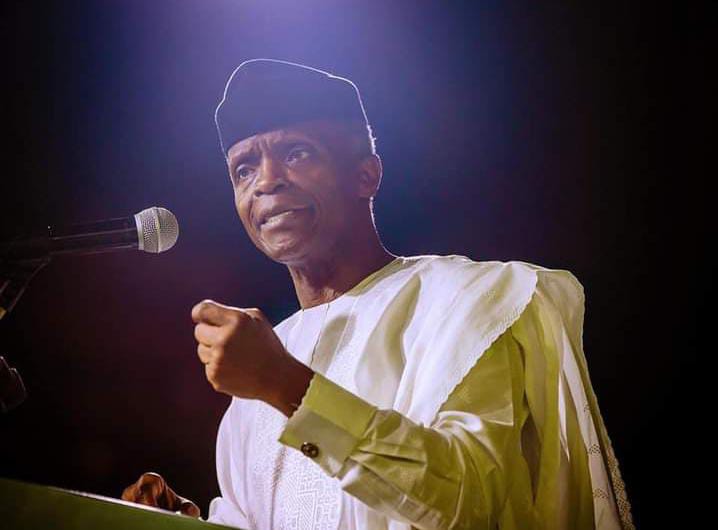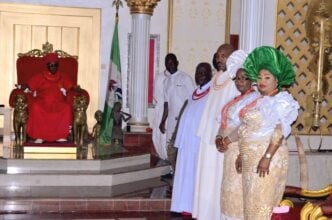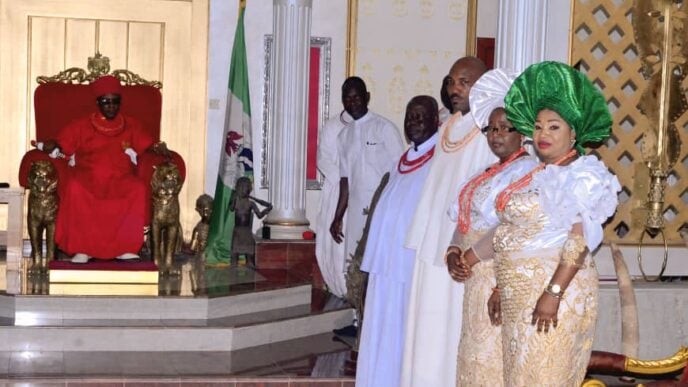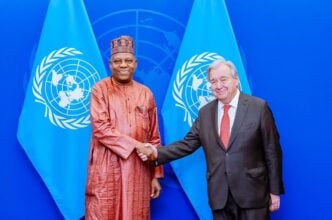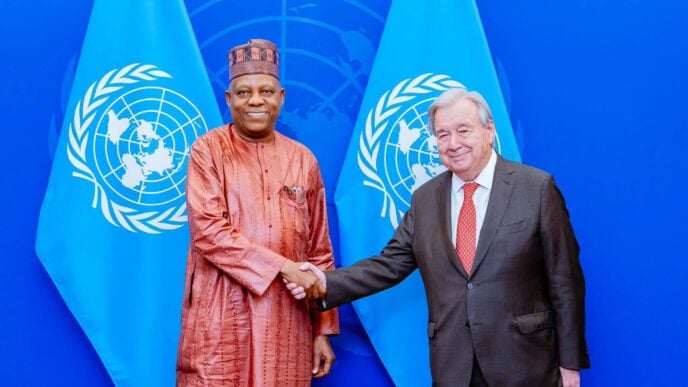I recently watched snippets of former Vice President Yemi Osinbajo’s speech at the 80th birthday celebrations of Bishop Mike Okonkwo, the founder of the Pentecostal Church, TREM, and former President of the Pentecostal Fellowship of Nigeria. The speech was powerful and a clear reminder of the former VP’s oratory.
Osibanjo condemned the prosperity gospel that has now held the Nigerian charismatic church by the jugular. He spoke on how money and material things are at the heart of the contemporary Nigerian church, with messaging that prioritises giving and sowing seeds (money), and pastors then linking this with prosperity and a good life.
He showed with biblical references that this is an anomaly, and that the religion that pleases God is the one that prioritises the poor, the orphan and the widow. I am sure this must be breaking news for prosperity-gospel merchants, many of whom now dominate the Nigerian Christian landscape.
The most significant part of Osinbajo’s speech was his retelling of history, how the revolutionary nature of the true gospel of Jesus Christ transformed Europe and North America, laying the foundation for the prosperity and political systems that emerged in the Western world.
Advertisement
He referenced the Protestant work ethic, the Puritans and other groups and ideas that emerged from the studious application of the principles espoused by Christ and the early disciples, giving rise to concepts such as the equality of all men, sacrifice, and love for honest work regardless of the profession, and hatred for corruption, among others.
Osinbajo’s speech gladdened my heart, especially since it came from a Pentecostal pastor. So there could be no charge of hatred for Christianity, or that one does not know what he’s talking about. I have, again and again, made the same points in several articles and posts on Facebook that this burgeoning prosperity gospel is abnormal and cannot lead to the stability, growth, and prosperity of society.
What it does is promote greed and a craving for material things without commensurate interest in production. Or the shared values necessary for the well-being of all. People want wealth without the work, seeking to leverage prayer, sowing seeds, prophetic declarations and other supernatural means. Then they validate their belief system with an outlier experience – the testimony from the man who got the contract he didn’t deserve, or the woman who gave birth to a child without a womb, as indications that their own miracle is on the way! What God cannot do does not exist!
Advertisement
But outlier experiences are not exclusive to Pentecostal Christianity. These extraordinary events occur in any large demography regardless of faith. Sometimes cancer will go into remission in such a way that baffles medical doctors. Someone may get a job they barely qualify for. However, these things also happen to Muslims, Hindus and even atheists. They are not proof of prosperity, exceptionalism, progress or even God’s favour. If they were, our young men and women would not be risking their lives through the Sahara Desert as economic migrants to Europe and other ‘godless’ places.
The way to measure social progress and growth is not by exceptional or extraordinary stories, but by considering the median, the average outcomes in people’s lives. For instance, Nigeria is not considered a wealthy and prosperous nation, despite some of Africa’s richest men, such as Aliko Dangote, Tony Elumelu, and Michael Adenuga, being Nigerians.
If indeed the prosperity gospel works, the proof should by now be compelling in the community of believers. That demographic of Nigerians would by now reflect the endpoint of the message – living a healthy, long and prosperous life. But that is not the case. They typify the average Nigerian society, plagued by poverty, insecurity, a lifespan of only about 55 years, and other grim statistics that characterise Nigerian life.
We know them. They all live around us. ‘Christians’ who claim to be ‘strong’ when they are actually sick, or to be ‘rich’ when, in fact, penniless. Indeed, several Pentecostal practices are unchristian, such as putting money at the pastor’s feet, ‘speaking to your seeds’, or ‘sending your seeds on an errand.’ These are carryovers from African traditional religion, making Nigerian Pentecostalism steeped in syncretism.
Advertisement
As Osibanjo made clear, the true gospel of Christ contains the inherent power to transform society. The principles he espoused, such as loving one’s neighbour as yourself, and other biblical ideas, like the concept that God created everyone in his image, regardless of race, gender, status or ethnicity, can promote equality, a healthy work ethic, diligence, sacrifice, and justice, providing society with the right balance to grow and develop.
It is not too late to embrace that true message of Christ.
Views expressed by contributors are strictly personal and not of TheCable.

